Pakistan's auto sector in trouble but used car demand rises
Economic slowdown, rupee devaluation push consumers to go for second-hand cars
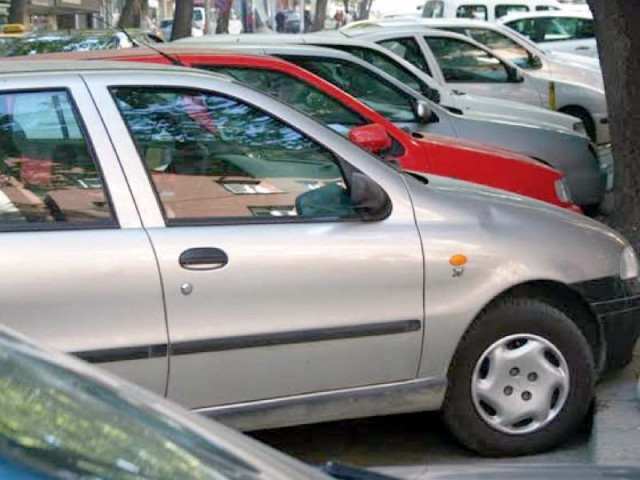
Consumers, who had earlier preferred two to three-year-old cars, are now demanding five to eight-year-old vehicles due to fall in their disposable income. PHOTO: FILE
From only three players initially, which dominated the market, a handful of new companies expressed interest in investing in the sector in the past couple of years. Some of these new entrants have already entered the country while others are expected to enter soon.
A number of developments in the past two years have adversely impacted the existing players, hence pulling the sector down. Several rounds of currency devaluation coupled with fresh levies have hit the carmakers hard.
The rupee has lost 49% of its value since December 2017, following which the auto companies have massively hiked car prices. A slowdown in the economy, rising inflation and declining purchasing power of consumers have dented profit margins of all the three players, which has been reflected in their latest financial results.
Recently, two of the three automakers had to halt production due to growing stockpile and meagre demand.
Latest statistics of the Pakistan Automotive Manufacturers Association (Pama) revealed that car sales in Pakistan fell 39% in September 2019 compared to the same period of previous year. Around 11,724 units were sold in the previous month compared to 19,345 units in September 2018.
Things may be going from bad to worse for the big three Japanese automakers, but there are some who have emerged as gainers in this situation.
The second-hand car segment has witnessed a spike in business activity. Officials revealed that demand for used cars had surged in the past one and a half year.
Japanese Car Dealers Association Pakistan Information Secretary Umer Rashad told The Express Tribune that sales of second-hand cars had gone up.
“We have noticed a drastic drop in sales of locally assembled new cars and freshly imported cars due to multiple rounds of devaluation,” he said. “Consumers are consistently demanding older and cheaper cars.”
He added that the sluggish sales volume of new cars had dented the income of many vehicle dealers.
Rashad pointed out that demand and supply forces had pushed used car prices upwards as well because sellers always priced their used cars in line with changes in rates for new vehicles.
However, he said due to a fall in the purchasing power, sales of all types of cars (new and used) had decreased because of consumer scepticism and a lower disposable income.
He pointed out that the consumers, who earlier preferred two to three-year-old cars, were now demanding five to eight-year-old vehicles due to fall in their disposable income.
“Within the used car segment, the demand for older cars has increased compared to relatively newer used cars,” he said. “At present, the market seems to be at an all-time low.”
Talking about the new taxes imposed in the budget for 2019-20, he said more taxes simply meant higher prices, resulting in even lower demand, which would prove detrimental for the government’s vision of attracting new entrants into the auto industry.
He was of the view that a major problem in the auto industry was supply, not demand, adding that the local industry did not have the capacity to meet demand. Earlier, the gap was filled by imports, which created a fair bit of competition.
Imported cars
Ever since SRO52 has come into force, the arrival of imported used cars has almost dropped to zero.
Rashad was of the view that imports had not completely halted rather the figure had shrunk to 5-10%. “Around 50,000-70,000 cars were imported each year prior to the imposition of SRO52, but now the figure has dropped to 6,000,” he said.
In the past, cars up to five-year-old were imported under the personal baggage, transfer of residence and gift schemes meant for the overseas Pakistanis. When the import was possible, nearly 95% of the imported used cars were Japanese.
Now, the government has made the procedure extremely difficult due to which those who earlier desired to buy imported cars are now going for local cars. Perhaps, this is another reason why the second-hand car market has experienced a spike in activity.
Echoing Rashad’s views, Japanese car importer Imran Zaman said demand for used cars had indeed increased in the past one and a half year due to rupee devaluation followed by price hikes.
He was of the view that the imposition of federal excise duty on cars of all engine capacities in the recent budget had dented sales of new cars and shifted potential consumers to second-hand vehicles.
It is pertinent to mention that FED was earlier only applicable to cars of 1,700cc and above.
He added that sales of second-hand cars would never fall because these were priced way below new cars, which gave buyers an advantage.
Consumers
Syed Jawad, who bought a second-hand car to drive as Uber, stated that the second-hand market had expanded since ride-hailing firms entered Pakistan. He pointed out that many drivers employed by the company had bought used cars rather than new ones because they found those cars affordable.
What the industry has to say
Talking to The Express Tribune, Indus Motor Company CEO Ali Asghar Jamali said taxes imposed by the government on the automobile sector coupled with reduction in purchasing power of the consumers arising due to economic slowdown had caused a decline in sales of new automobiles. However, he expressed optimism that the automobile sector of Pakistan would take off after some time.
“There is a massive potential in this sector and sooner or later it will recover and thrive,” he said.
Published in The Express Tribune, October 30th, 2019.
Like Business on Facebook, follow @TribuneBiz on Twitter to stay informed and join in the conversation.

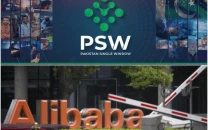

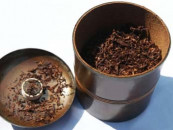

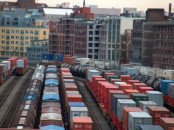
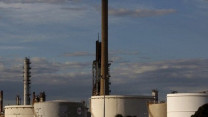












COMMENTS
Comments are moderated and generally will be posted if they are on-topic and not abusive.
For more information, please see our Comments FAQ